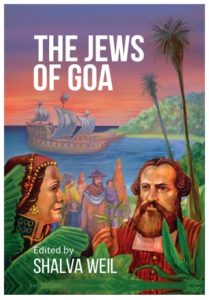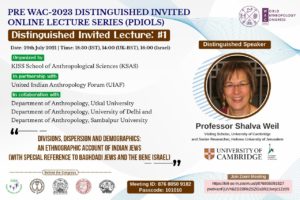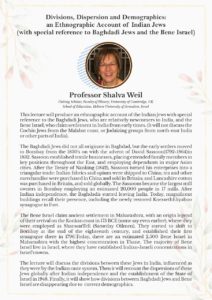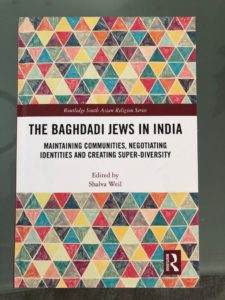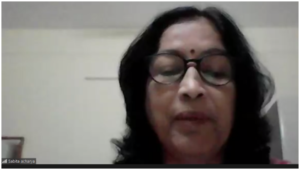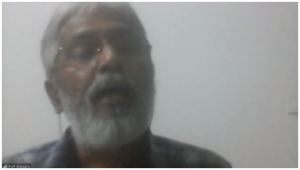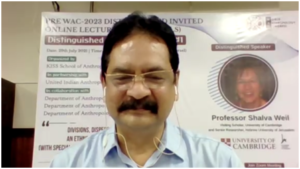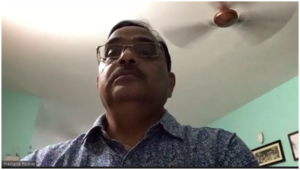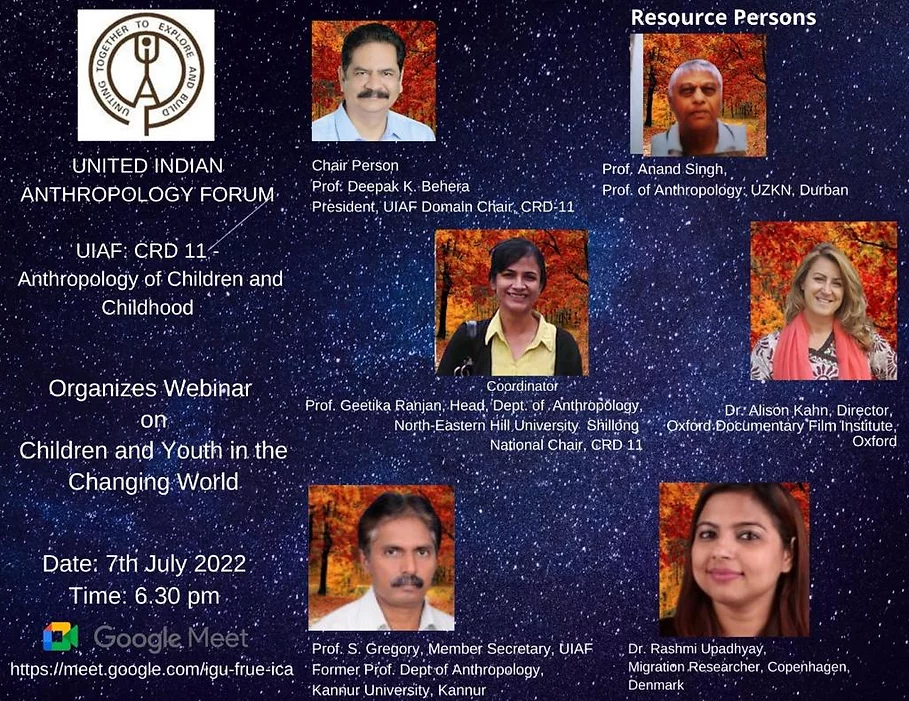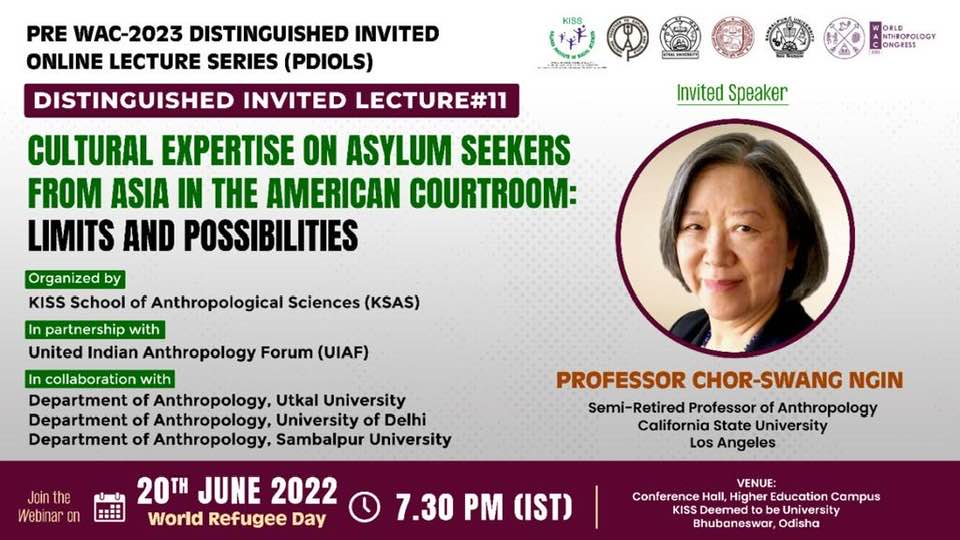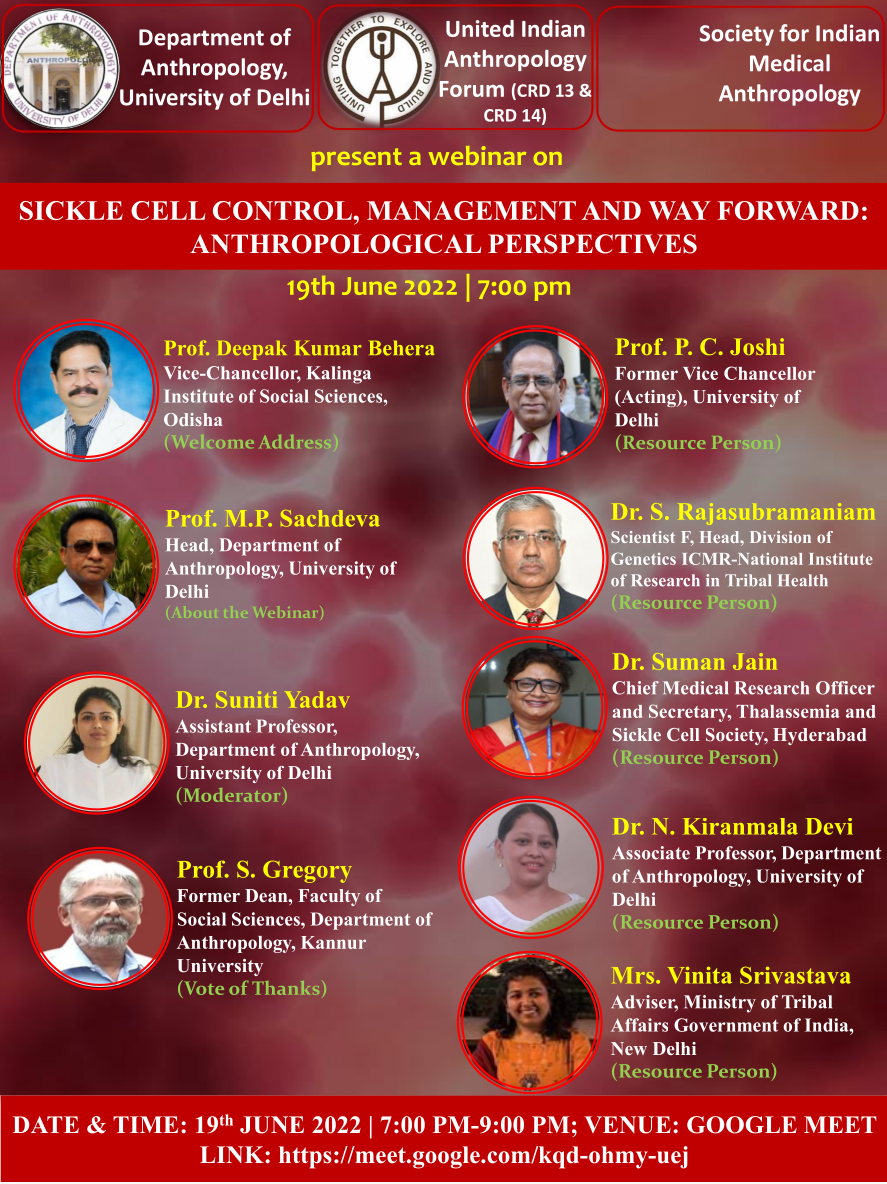The first Pre-WAC lecture began on a ceremonial note. Dr Prashanta Kumar Routray, Registrar, KISS-DU welcomed the distinguished speakers, participants and requested Prof. Behera to Chair the Session.
For her part, Prof. Sabita Acharya, Vice-Chancellor of Utkal University, introduced Prof Weil and noted with great satisfaction that meticulous planning is underway for the upcoming mega event of the World Anthropological Congress in 2023.
In his presidential welcome address, Prof. Deepak Kumar Behera, Vice-Chancellor, KISS-DU, felicitated Prof Wei, mentioning that this distinguished scholar had undertaken extensive fieldwork on the Baghdadi Jews and Bene Israelis, and had edited two invaluable volumes, namely The Baghdadi Jews in India and The Jews of Goa. Prof. Behera also mentioned that the ensuing World Anthropology Congress, 2023, would be jointly organised by Utkal University, Sambalpur University, and the University of Delhi under the auspices of the United India Anthropology Forum (UIAF). He sought the cooperation of all the stakeholders to successfully execute the planning of this event.
Prof. Shalva Weil presented a very interesting ethnographic account of the Indian Jews, saying that all the Baghdadi Jews did not originate from Baghdad, but the early settlers moved to Bombay in the early 1830s, with David Sassoon (1792-1864) being the pioneer in 1832. Sassoon established textile businesses, kept in key positions members of his extended family throughout the East, and employed many dependents in major Asian cities. After the Treaty of Nanking (1842), he turned his enterprises into a triangular trade: Indian fabrics and opium were shipped to China; tea and other merchandise were purchased in China and sold in Britain, and Lancashire cotton was purchased in Britain, and sold globally. The Sassoonsgrew into the largest mills in Bombay, with an estimated twenty thousand people in seventeen mills under their employ.
Prof. Weil pointed out that after India’s independence, the Baghdadi Jews started leaving India, and the present remnants of some magnificent buildings, including the newly restored KnessethEliyahoo synagogue, remind us of their presence in colonial times. On the other hand, Prof. Weil informed, that the Bene Israelis were very ancient settlers in Maharashtra. They are believed to have arrived on the Konkan coast as early as 175 BCE, where they took up the profession of pressing oil and were known as ShanwarTeli (Saturday Oilmen). They migrated to Bombay at the end of the 18th Century and established their first synagogue there in 1796. Today, there are an estimated twenty-five thousand Bene Israelis in Maharashtra, said Prof. Weil, with the highest concentration in Thane. However, she clarified, that the majority of Bene Israelis have subsequently established Indian-Israeli neighbourhoods in the towns of Israel.
After the end of the talk, Dr Disha Bhatt, Deputy Coordinator, IQAC, KISS-DU moderated the Question & Answer Session, while Prof. S. Gregory summed up the session by highlighting all the key points covered by Prof. Weil in her presentation. He also proposed a formal vote of thanks to the speakers, participants, technical staff, and others who played an important role in making the first Pre-WAC lecture Series a grand success.
